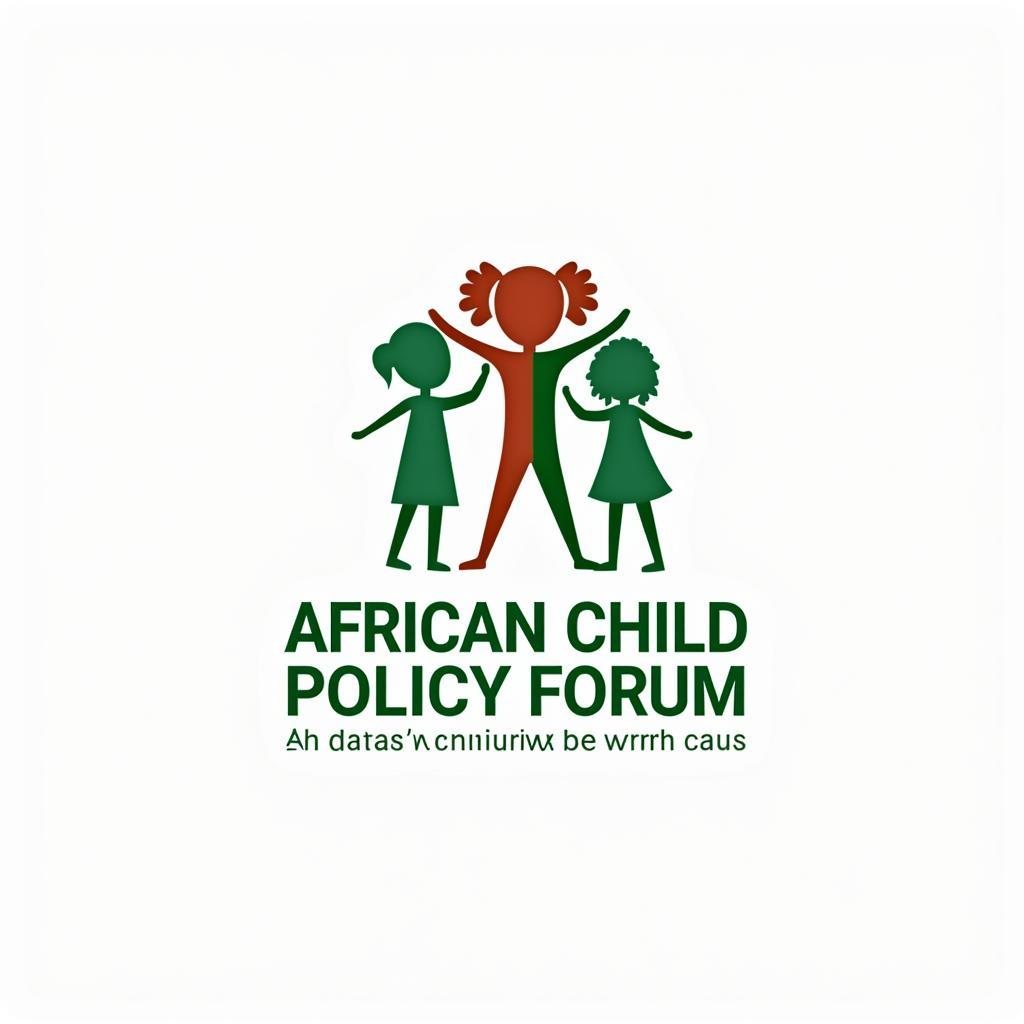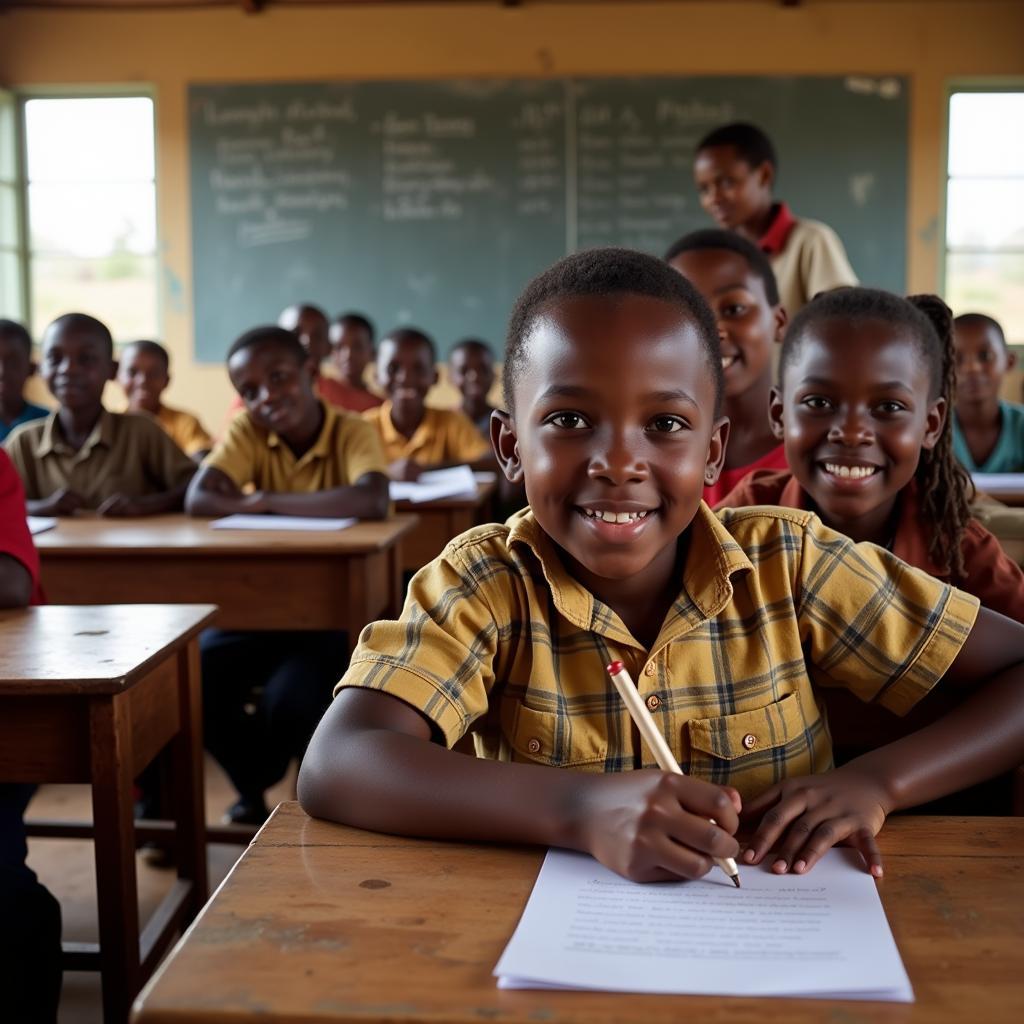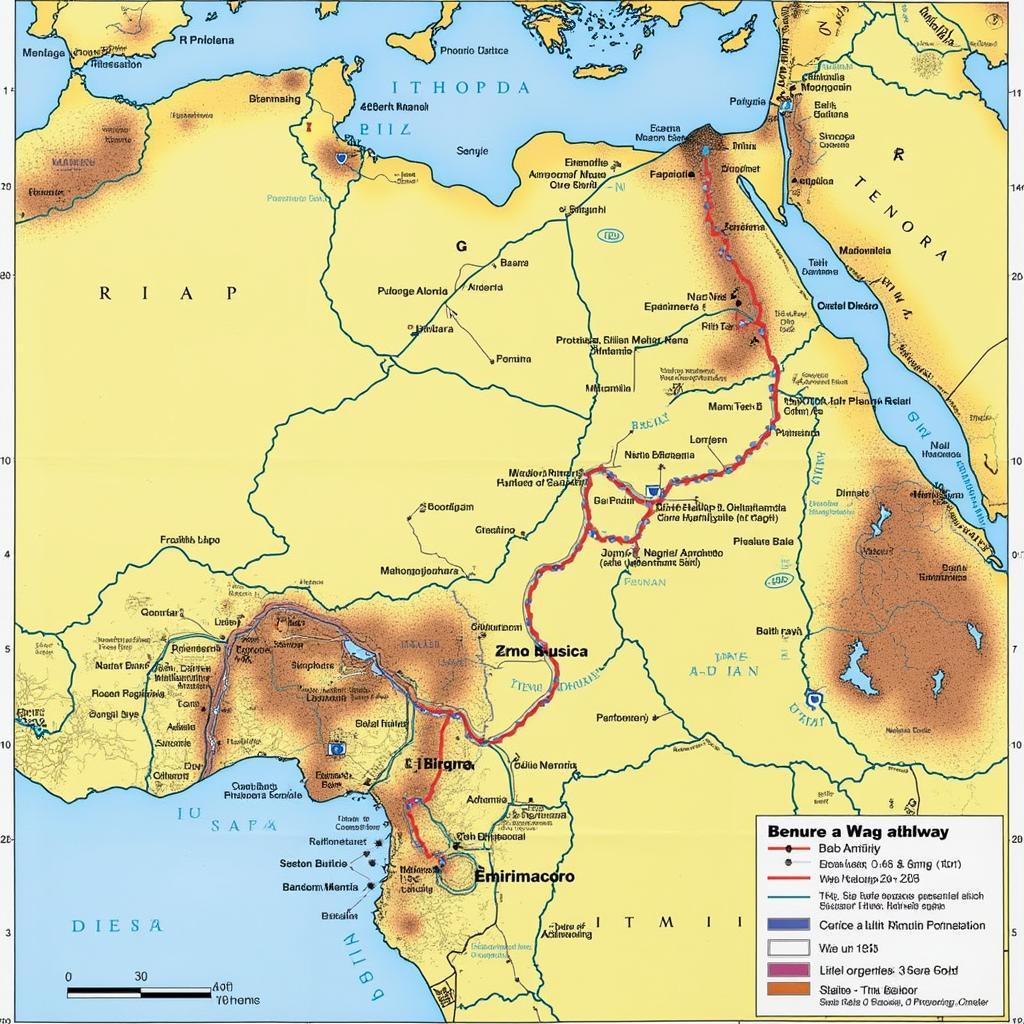Navigating the African Child Policy Forum: A Comprehensive Guide
The African Child Policy Forum (ACPF) stands as a beacon of hope and a driving force for change in the lives of millions of children across the African continent. This comprehensive guide delves into the multifaceted work of the ACPF, exploring its impact, challenges, and the future of child rights in Africa.
 African Child Policy Forum Logo
African Child Policy Forum Logo
Understanding the African Child Policy Forum
Established in 2003, the ACPF is a pan-African institution dedicated to promoting and protecting the rights of children in Africa. More than just an organization, the ACPF operates as a powerful network, connecting governments, civil society organizations, and individuals committed to realizing a brighter future for every African child.
At the heart of the ACPF’s mission lies the African Charter on the Rights and Welfare of the Child (ACRWC). This groundbreaking charter, adopted in 1990, provides a comprehensive framework for protecting and promoting the rights of children across the continent.
Key Areas of Focus
The ACPF tackles a diverse range of issues impacting children’s lives, employing a multifaceted approach to create lasting change. Some of their key areas of focus include:
- Education: The ACPF actively advocates for increased access to quality education for all children, recognizing education as a fundamental human right and a cornerstone of development. They work to eliminate barriers to education, such as poverty, gender inequality, and disability.
- Health: Recognizing that healthy children are the foundation of a thriving society, the ACPF strives to improve child health outcomes across Africa. Their initiatives address critical issues like child mortality, malnutrition, and access to healthcare services.
- Child Protection: The ACPF works tirelessly to protect children from all forms of violence, exploitation, and abuse. This includes advocating for stronger child protection systems, promoting positive parenting practices, and combating harmful traditional practices.
 African Children Attending School
African Children Attending School
Impact and Achievements
The ACPF has made significant strides in advancing child rights in Africa. Their research, advocacy, and capacity-building initiatives have contributed to:
- Increased awareness of child rights: The ACPF has played a crucial role in raising awareness of the ACRWC and other international child rights instruments.
- Strengthened national policies and legislation: ACPF’s advocacy has spurred numerous African countries to adopt and implement stronger laws and policies to protect children’s rights.
- Empowered children and youth: Recognizing the power of young voices, the ACPF actively engages children and youth in their work, providing them with platforms to advocate for their rights.
Challenges and the Road Ahead
Despite the progress made, significant challenges remain in ensuring the well-being of all African children. Poverty, conflict, climate change, and discrimination continue to pose substantial threats. The ACPF acknowledges these challenges and remains steadfast in its commitment to:
- Addressing emerging threats to child rights: The ACPF continuously adapts its strategies to address emerging challenges, such as online child exploitation and the impact of climate change on children.
- Strengthening partnerships and collaboration: The ACPF recognizes the importance of collaborative action and actively seeks to strengthen partnerships with governments, civil society organizations, and other stakeholders.
- Promoting accountability and transparency: The ACPF champions transparency and accountability in all aspects of its work, holding duty bearers responsible for upholding children’s rights.
The African Girls Fight Initiative
One notable initiative spearheaded by the ACPF is the African Girls Fight project. This program specifically addresses the unique challenges faced by girls across the continent. The African Girls Fight initiative focuses on:
- Ending child marriage: The ACPF actively campaigns against child marriage, advocating for legal reforms and supporting community-based programs that empower girls.
- Promoting girls’ education: The ACPF recognizes that educating girls is essential for breaking the cycle of poverty and achieving gender equality. They work to improve girls’ access to quality education at all levels.
- Ensuring access to healthcare: The ACPF strives to ensure that girls have access to essential healthcare services, including reproductive health services.
 African Girls Participating in Workshop
African Girls Participating in Workshop
Conclusion: A Brighter Future for African Children
The African Child Policy Forum stands as a testament to the unwavering commitment to securing the rights and well-being of all African children. Their tireless work, grounded in research, advocacy, and collaboration, offers a beacon of hope for a future where every child in Africa can thrive and reach their full potential. By supporting the ACPF’s mission and advocating for child rights within our communities, we can collectively contribute to a brighter future for all.
Frequently Asked Questions about the African Child Policy Forum
1. How can I get involved with the African Child Policy Forum?
The ACPF welcomes individuals, organizations, and institutions to join their movement for child rights. You can contribute by:
- Staying informed: Visit the ACPF website and follow their social media channels to stay updated on their work and learn about current issues affecting children in Africa.
- Spreading the word: Share information about the ACPF and their initiatives with your networks to raise awareness about child rights in Africa.
- Supporting their work: Consider making a donation to the ACPF to support their research, advocacy, and capacity-building programs.
2. What are some of the key challenges facing the ACPF in its work?
The ACPF faces a number of challenges in its efforts to promote and protect child rights in Africa, including:
- Limited resources: The ACPF operates in a context of limited financial and human resources, which can hinder their ability to effectively implement their programs.
- Political instability: Political instability and conflict in some parts of Africa can pose significant challenges to the ACPF’s work, particularly in terms of accessing children in need.
- Cultural norms: Deeply rooted cultural norms and traditional practices, such as child marriage and female genital mutilation, can be difficult to address.
3. What is the role of education in advancing child rights in Africa?
Education plays a pivotal role in advancing child rights by:
- Empowering children: Education empowers children with knowledge, skills, and critical thinking abilities, enabling them to advocate for their rights and make informed decisions about their lives.
- Breaking the cycle of poverty: Education provides children with opportunities to lift themselves and their families out of poverty, contributing to economic development and social progress.
- Promoting gender equality: Education is crucial for achieving gender equality by challenging discriminatory norms and empowering girls to reach their full potential.
4. How does the ACPF work with governments to improve child well-being?
The ACPF engages with governments through various means, including:
- Providing technical assistance: The ACPF offers technical support to governments in developing and implementing child-sensitive policies and legislation.
- Conducting research and monitoring: The ACPF undertakes research and monitoring initiatives to assess the situation of children’s rights and hold governments accountable for their commitments.
- Facilitating dialogue and collaboration: The ACPF facilitates dialogue and collaboration between governments, civil society organizations, and other stakeholders to promote a coordinated approach to child rights.
5. What is the significance of the African Charter on the Rights and Welfare of the Child?
The ACRWC holds immense significance as it:
- Provides a comprehensive framework: The ACRWC provides a comprehensive legal framework for protecting and promoting the rights of children in Africa.
- Reflects African values: The ACRWC is rooted in African values and traditions, taking into account the specific cultural and social context of the continent.
- Serves as a powerful advocacy tool: The ACRWC serves as a powerful tool for advocacy and litigation, enabling individuals and organizations to hold governments accountable for upholding children’s rights.
Need More Information?
For further inquiries or assistance regarding child rights in Africa, please don’t hesitate to contact us:
Phone: +255768904061
Email: kaka.mag@gmail.com
Address: Mbarali DC Mawindi, Kangaga, Tanzania
Our dedicated team is available 24/7 to address your concerns and provide comprehensive support. You can also explore more insightful articles on our website, including resources on African countries education ranking and the impact of the African association of physiological sciences. Together, let’s champion the rights of every child in Africa.


